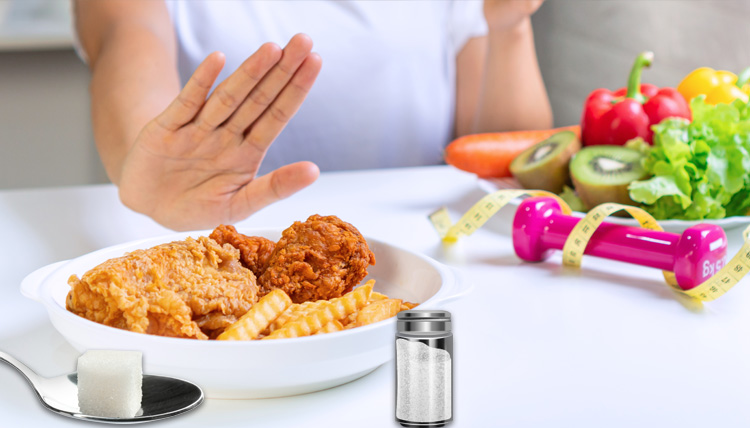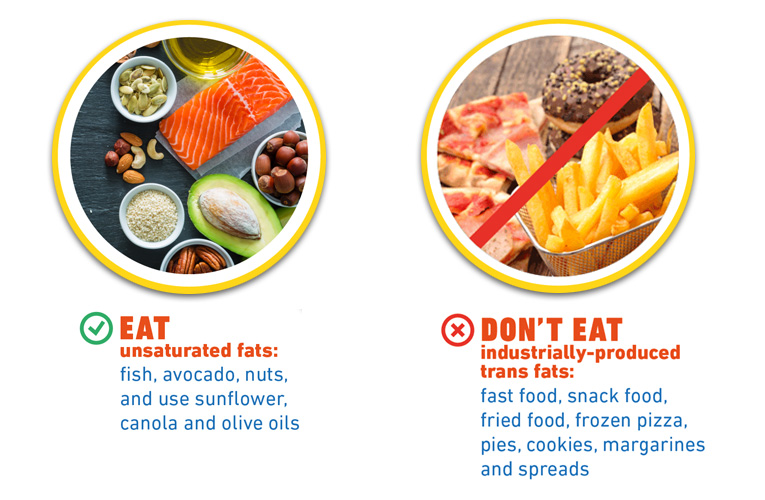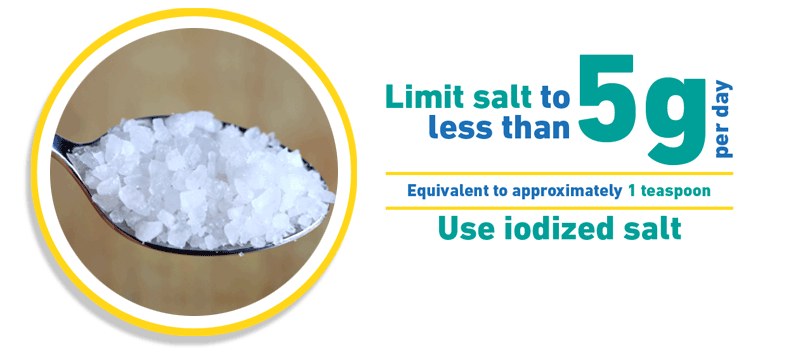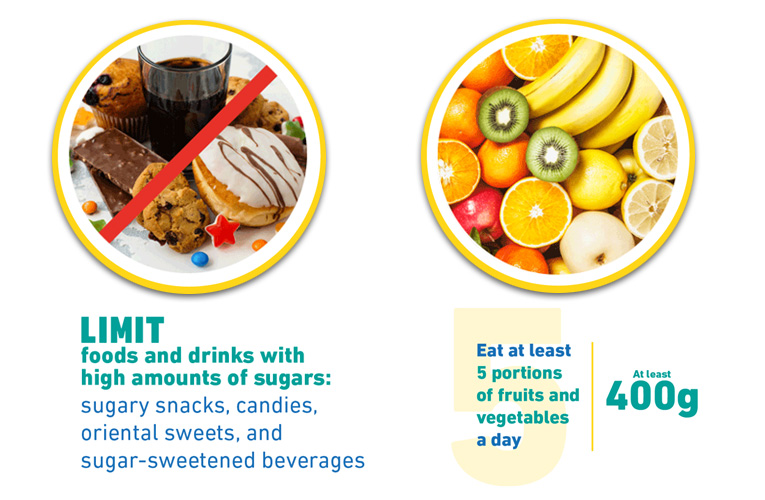Limit fat, salt and sugar intake

Limit fat intake
Reduce the amount of total fat intake to less than 30% of total energy intake to help prevent unhealthy weight gain. Lower your risk of developing noncommunicable diseases (such as heart disease, stroke, diabetes and some cancers) by: reducing saturated fats (found in fatty meat, butter, coconut oil, cream, cheese, ghee and lard) to less than 10% of total energy intake; reducing total trans fats (found in processed food, fast food, snack food, fried food, frozen pizza, pies, cookies, margarines and spreads) to less than 1% of total energy intake; and replacing both with unsaturated fats (found in fish, avocado, nuts, olive oil, soy, canola, sunflower and corn oils).

You can reduce fat intake by:
changing how you cook – remove the fatty part of meat, use vegetable oil (not animal oil), and boil, steam or bake rather than fry
avoiding processed foods containing trans fats
limiting the consumption of foods containing high amounts of saturated fats.
Limit salt intake
Reduce your salt consumption to the recommended level of less than 5 g per day. Most people consume too much sodium through salt (corresponding to an average of 9–12 g of salt per day) and not enough potassium. High salt consumption and insufficient potassium intake (less than 3.5 g) contribute to high blood pressure, which in turn increases the risk of heart disease and stroke.
People are often unaware of the amount of salt they consume. In many countries, most salt comes from processed foods (e.g. ready meals; processed meats like bacon, ham and salami; cheese and salty snacks) or from food consumed frequently in large amounts (e.g. bread). Salt is also added to food during cooking (e.g. bouillon, stock cubes, soy sauce and fish sauce) or at the table (e.g. table salt).

You can reduce salt consumption by:
not adding salt, soy sauce or fish sauce during the preparation of food
not having salt on the table
limiting the consumption of salty snacks
checking food labels and choosing products with lower sodium content
consuming fresh fruits and vegetables to increase potassium, which can mitigate the negative effects of elevated sodium consumption on blood pressure.
Limit sugar intake
Reduce your intake of free sugars throughout the lifecourse. Free sugars are all sugars added to foods or drinks (e.g. glucose, galactose, fructose, sucrose or table sugar) by the manufacturer, cook or consumer, as well as sugars naturally present in honey, syrups, fruit juices and fruit juice concentrates.
Adults and children: reduce intake of free sugars to less than 10% of total energy intake. A reduction to less than 5% of total energy intake provides additional health benefits, so reduce intake of free sugars further. Consuming free sugars increases the risk of dental caries (tooth decay). Excess calories from foods and drinks high in free sugars also contribute to unhealthy weight gain, which can lead to overweight and obesity.

You can reduce your sugar intake by:
limiting the consumption of foods and drinks containing high amounts of sugars (e.g. sugar-sweetened beverages, sugary snacks and candies)
eating fresh fruits and raw vegetables as snacks instead of sugary snacks.


